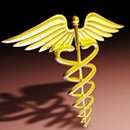
by UnitedHealthcare
Tips to help keep your health on track!

What immediate changes can I make for better heart health?
Some of the immediate lifestyle changes you can make for better heart health are:
- Get a yearly preventive exam – With regular checkups each year, medical issues may be identified earlier and could help you live a longer, healthier life.
- Check cholesterol – Ask for a baseline test if it’s never been checked. Then have it re-checked each year as part of your preventive exam. Young adults should have their cholesterol checked beginning in their twenties if high blood pressure runs in their family. If you have high cholesterol, your doctor may monitor it more often.
- Monitor blood pressure – Blood pressure is another vital sign that should be checked yearly. If heart disease runs in your family or you have heart disease, your doctor will monitor it more frequently.
- Stop smoking – If you smoke – quit. Smoking is a major contributor to heart disease, especially atherosclerosis. Quitting is the most immediate thing you can do to reduce your risk of heart disease and other heart issues.
- Control your diabetes – If you are diabetic, it’s crucial to control your blood sugar to help lower your risk of heart disease.
- Eat healthy foods and maintain a healthy weight – Fruits, vegetables, and whole grains are heart healthy foods. They are lower in sodium, saturated fats, cholesterol, and added sugar – and may help keep your weight, cholesterol, and blood pressure under control.
- Stay active – Movement is necessary every day, not only to help you manage your weight, but to also help control the many risk factors of heart disease. Talk to your doctor to determine what physical activity you can safely perform each week.
- Minimize stress/depression – Learn to relax and focus on keeping your stress level and any depression to a minimum. The risk of heart disease increases with depression and stress. Seek professional help if you can’t do it on your own.
If I am diagnosed with heart disease, what are some coping skills?
It can be scary to learn you have heart disease and managing stress is very important to your condition. Emotional support, along with proper care and treatment, is important to helping your heart condition stabilize or improve. A few things you can do are:
- Seek out support groups – Family and friends are a great way to seek support. If, however, you feel that’s not enough, do not hesitate to ask your doctor about a support group. Sometimes sharing your experience and fears with others who have similar issues helps you cope better.
- See your doctor regularly – To ensure your condition is being treated properly, it is important that you see your doctor regularly.
- Participate in a cardiac rehabilitation program – If this program is recommended to you by your doctor, participate in it. It will not only help you recover, but it will focus on exercise, diet, education, and support for lifestyle changes that will help keep your heart healthy.
What questions should I ask my doctor if I am diagnosed with heart disease?
It is important to be an advocate of your own health. If you are diagnosed with heart disease, you want to understand everything your doctor is telling you. If you have questions, write them down so you don’t forget what to ask. Bring someone to the appointment with you who can help interpret what you are being told. Some questions you should ask your doctor are:
- What is causing my heart disease?
- Can anything else be contributing to my condition?
- What are the various tests/procedures I will need?
- What can I do to help improve my heart condition?
###
Some information provided to UnitedHealthcare by www.mayoclinic.org
This is informational only, not a replacement for the medical advice of your physician.
Related News
- Transit Funding Boost Proposed by SMART-TD Backed Bill
- California SMART-TD Brother Killed on the Job
- Union Mourns the Loss of Brother Charles Harrison
- FRA Issues Grade-Crossing Safety Advisory
- Amtrak To Give SMART-TD Members Holiday Bonuses
- SEPTA Strike Avoided: Strong Agreement Secured
- Posthumous Retirement Ceremony Honors Lost Brother
- SMART-TD: Built by Members, Driven by Your Voice
- Conductor, Volunteer Firefighter Injured and Needs our Help
- FRA Doubles Our Risk By Reducing Track Inspections